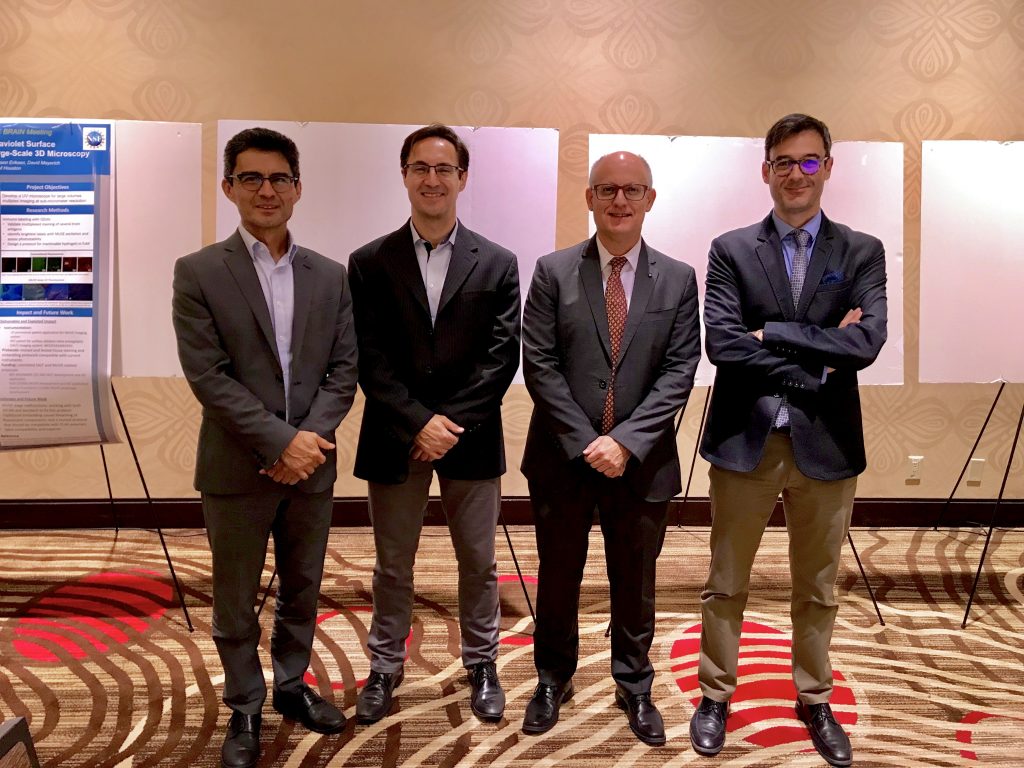UMH admitted as new international node of the US BRAIN Center
The UMH has been formally admitted as a new international node of the international BRAIN (Building Reliable Advances and Innovation in Neurotechnology) Center, a US collaborative research organism funded by the prestigious National Science Foundation (NSF), of which a large number of American businesses and hospitals form part. The UMH was admitted on December 7, after Professor José M. Azorín and Vice Rector for International Relations, Vicente Micol, presented the Elche institution’s candidacy at the University of Houston for becoming an international node of the prestigious center.
The BRAIN Center, which brings together industry and universities for research, is led by Arizona State University and the University of Houston. It is supported by the NSF, which is dedicated to developing and funding public health certification programs and standards for the protection of the environment, foodstuffs, water, consumer products, and health sciences all around the world. Besides the UMH, only two other international node institutions outside the US form part of this center: Imperial College London (United Kingdom) and the Monterrey Institute of Technology and Higher Education (Mexico).

Left to right: José Contreras-Vidal, BRAIN Center Co-Director at the University of Houston; Marco Santello, BRAIN Center Director at Arizona State University; Vicente Micol, Vice Rector for International Relations; and José M. Azorín, UMH Professor.
The international node of this center at the UMH will be directed by Professor José M. Azorín, and it will receive institutional support from the Vice Rectorate for Research and Innovation and Vice Rectorate for International Relations. UMH membership in the BRAIN Center will facilitate access to new opportunities for funding and projects in the area of neurotechnology, and it will enhance international mobility for faculty and students between center nodes. Its activities will set forth in the distinct subfields of neurotechnology, such as those related to health, athletics, arts, and intelligent industry or the smart factory. Additionally, it provides an opportunity to stimulate entrepreneurial and translational activities in the area of the health sciences at the UMH, including the Cyborg Experimental Center.
The BRAIN Center is funded by the Industry-University Cooperative Research Centers Program of the NSF, which strives to foster research of interest for industry and universities, facilitate technological transfer, and contribute to the development of research infrastructure. The BRAIN Center’s main objective is to advance neurotechnology for the diagnosis, improvement, and rehabilitation of motor, sensory, affective, and cognitive functions by promoting interdisciplinary research, aiming to improve the quality of life in people. Examples of neurotechnologies to develop include, among others, brain-computer interfaces to control exoskeletons for the treatment of people affected by cerebrovascular accidents, new non-invasive neuromodulation techniques, 3D imaging techniques of brain activity, etc.
NSF funding is for 15 years. Further information about the BRAIN Center is available at this link: http://brain.egr.uh.edu/